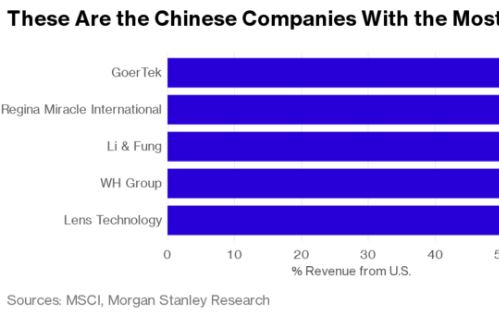Coal-to-gas plants a setback for China’s environmental efforts
Top business and technology news for February 8, 2017. Part of the daily The China Project news roundup "Chinese state media group invests in gay dating app.”

-
‘Irrational’ coal plants may hamper China’s climate change efforts / NYT (paywall)
Despite China’s commitment on the global stage to combating climate change and the rise of public anger over air pollution, at least four coal-to-gas plants have begun operating in China over the past four years. According to a 2014 report issued by Greenpeace East Asia, governments and companies across China had plans to build 50 such plants, which together would produce an estimated 1.1 billion tons of carbon dioxide per year. The existing plants are often located in areas that have a sparse population but abundant coal resources, such as the frontier region in Xinjiang, to meet the massive gas demand in big cities like Shanghai and Beijing, which need to limit coal use significantly under the tightened pollution control policies announced in 2013. -
South Korean theme park in China halted amid missile tension / Yahoo News
China has retaliated against South Korea since the announcement in July 2016 that the U.S. and its northeast Asian ally would deploy an advanced missile defense system to counter the threat from nuclear-armed North Korea. China sees the move as an unwelcome change in the strategic balance of the region, and has responded with commercial pressures: In August 2016, Chinese TV stations were told that programs featuring South Korean pop stars would not be approved. In January this year, we noted that performances in China by two prominent South Korean musicians were canceled. This week brings news that Chinese authorities have suspended a multi-billion-dollar theme park project in the northeastern city of Shenyang planned by the South Korean conglomerate Lotte. Meanwhile, after an electric car from Hyundai failed to gain approval for sale in China, probably as part of the same commercial pushback against THAAD, the South Korean auto maker said it may procure batteries from Chinese companies, apparently an attempt to win back the good graces of the Chinese authorities. -
Joyous Africans take to the rails, with China’s help / NYT (paywall)
In January, the first electric and transnational railway in Africa made its inaugural run from the capital of Djibouti toward Addis Ababa, the Ethiopian capital. Behind the remarkable project is China’s ambition to “transform the way Africans travel and do business with each other, and the rest of the world” by constructing rail projects as part of the new Silk Road initiative. In contrast to America’s lack of development efforts in Africa, China is enthusiastic about building railroads, schools, and stadiums on the continent, and became Africa’s biggest trading partner in 2009. In Djibouti alone, “China is placing more than $14 billion worth of bets,” which include three ports, two airports, and a pipeline.
- China property stocks priced for disaster are bargain to Goldman – “China’s property developers are in far better shape than their rock-bottom stock valuations would have you believe” / Bloomberg
- For Chinese home buyers, Seattle is the new Vancouver / WSJ (paywall)
- Hermes sales gain adds evidence of luxury recovery in China / Bloomberg
- Pet care trending in Chinese cities – China now has 27.4 million pet dogs, over 30,000 pet stores, and a pet care market valued at US$14.22 billion / Xinhua






